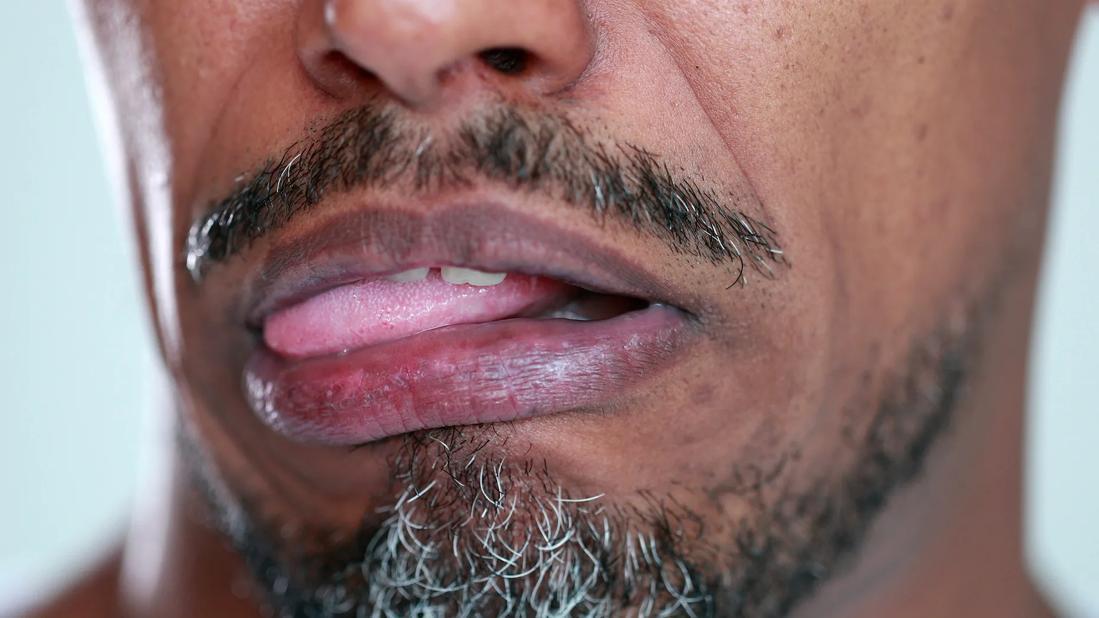Sour Taste in Your Mouth? Here Are the 9 Most Common Causes
Smoking, medications, acid reflux and even aging can all leave you with a bad taste in your mouth

Wondering why a sour taste in your mouth is leaving you with a permanent pucker? Family medicine physician Mark Rood, MD, reveals the nine most common causes ― and what, if anything, you can do about them.
9 causes of a sour taste in your mouth
There are lots of possible reasons your taster might turn on you. Dr. Rood says these are the ones he sees most often.
1. Dehydration
In some cases, that sour taste could be down to something as simple as not drinking enough water. “Dehydration can leave your mouth dry and can alter your sense of taste,” Dr. Rood says. Make a point of drinking at least eight glasses of water each day to boost your hydration levels.
2. Smoking
Not only does smoking dull your sense of taste, but it often also leaves a sour taste in its wake! Add these side effects to the long, long list of reasons to try quitting.
3. Not brushing or flossing properly
Poor oral hygiene can also cause a sour taste in your mouth. Recapture that minty fresh feeling by brushing at least twice a day and flossing at least once. And don’t skip those regular dental cleanings and check-ups, Dr. Rood advises.
4. Infections or illness
When you get sick (with a cold or sinus infection, for example), your taste buds may feel the effects. The sour taste should go away as you get better.
If you’re under the weather, it’s important to double down on hydration. Your body loses more fluid than usual when you’re sick because your immune system’s expending extra energy to fight off your bug. The fluid loss is even greater if you:
- Have a fever
- Are sweating more than usual
- Have diarrhea
- Are vomiting
Replacing that lost fluid won’t just get rid of the gnarly taste in your mouth: It’ll help you feel better, too!
You can also get a sour taste in your mouth with infections that don’t cause fluid loss. So, keep an eye out for other unusual symptoms. Oral thrush — a yeast infection that affects your mouth and tongue — can also cause a sour taste. A telltale sign of oral thrush? White patches on your tongue.
5. Medications
Sometimes, it’s not the infection or illness leaving a bad taste in your mouth, but the medication you’re treating it with. The COVID-19 medication Paxlovid® is especially well-known for this side effect, which is not-so-affectionately nicknamed “Paxlovid mouth.”
A wide range of drugs, from antibiotics and antipsychotics to chemotherapy, can cause a sour taste, Dr. Rood notes. And it’s not just prescription medicines that have that effect.
“Over-the-counter medicines like antihistamines can cause the problem as well,” he adds. “It can also be a side effect of other kinds of treatments, like radiation therapy for head and neck cancers.”
If you think a medicine you take is causing the sour taste, speak to the specialist who prescribed it. They may be able to switch you to another medication or share tips to make the taste less … well, distasteful!
6. Acid reflux or GERD
Sometimes, the muscle that opens and closes the junction between your esophagus and stomach doesn’t shut completely after you eat. When that happens, food and stomach acid can travel back into your esophagus. It’s another common cause of a sour or unpleasant taste in your mouth.
You can manage random bouts of heartburn by changing your eating habits, taking over-the-counter antacids and making lifestyle changes, like reducing meal sizes, not eating for several hours before bed and elevating your head when you lie down.
But if your acid reflux is severe or chronic — meaning, you deal with it at least twice a week over several weeks — make an appointment with a provider. You may have gastroesophageal reflux disease (GERD).
7. Getting older
Dr. Rood says that as we get older, our taste buds change. And that could be behind the sour taste in your mouth.
“As we age, our taste buds shrink and become less sensitive,” he explains. “This can affect your sense of taste.”
8. Mouth breathing
We rarely do it on purpose, but mouth breathing creates a perfect, dry environment for a sour taste to creep up on you. If it’s bothering you, Dr. Rood recommends speaking to your primary care provider. They can help you figure out what’s causing it.
9. Other medical conditions
Do you only have a sour taste in your mouth? Or do you have other symptoms, too? In some cases, a sour taste in your mouth could be a subtle sign of a serious medical condition, like:
- Diabetes
- Liver disease
- Kidney disease
Dr. Rood recommends contacting your provider if, in addition to that sour taste, you’re losing weight, experiencing fatigue or just feel “off.”
Final thoughts
You may be able to knock out the sour taste in your mouth yourself by staying hydrated, chewing sugar-free gum, practicing better oral hygiene or addressing other causes, like GERD. But if the symptoms continue for weeks, you’ll need a doctor’s help to pinpoint the cause.
“There are lots of reasons for a sour-tasting mouth that you might not expect, from anxiety disorders to a zinc deficiency to hormonal changes associated with pregnancy or menopause,” Dr. Rood says.
“In general, if you don’t have other symptoms, a sour taste isn’t a cause for concern. But you should still discuss it with your provider the next time you see them.”